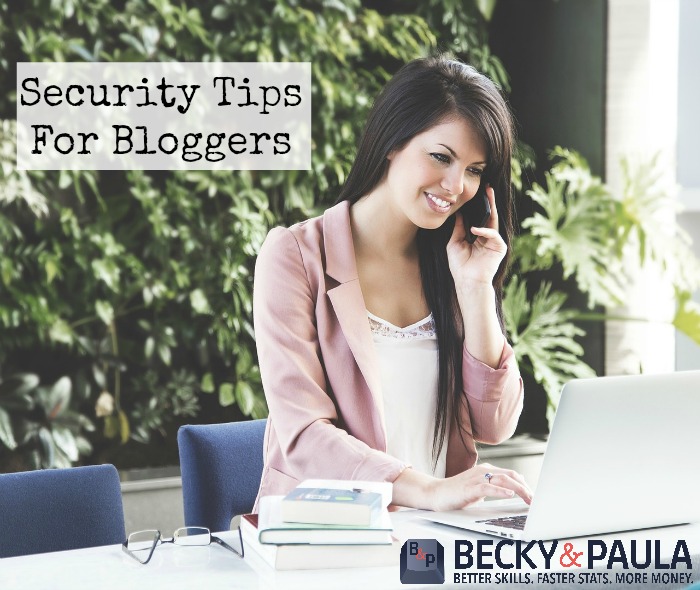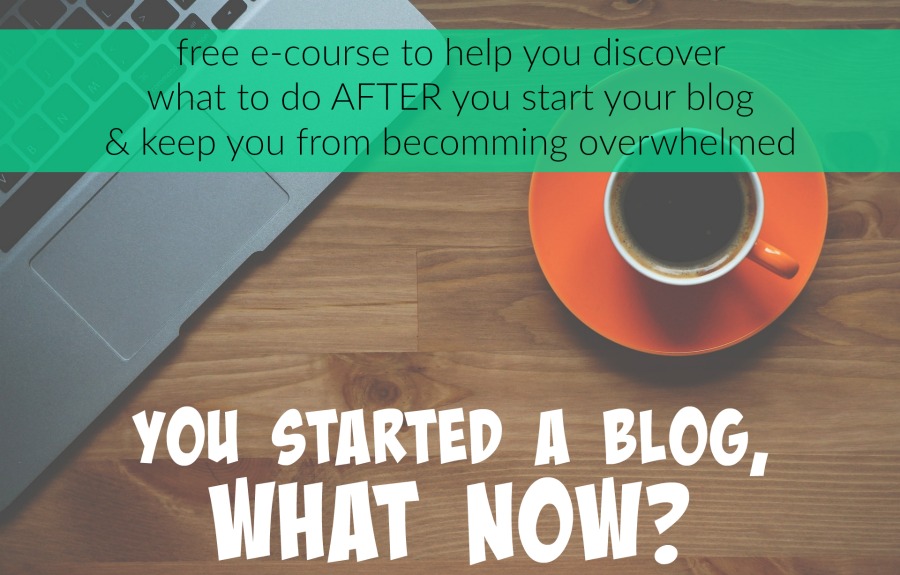So you’re officially a blogger. Your topics are interesting, and you regularly engage your audience. Everything is going well—for now. But there are some things you need to know if you want to protect that successful blog. How you handle your habits and daily activities can be the difference between running a secure blog and opening yourself up to hackers and data thieves.

Because security is no laughing matter, you’ll need a mixture of behaviors and security tools to achieve maximum effective. Here’s a list of habits you should make a part of your regular routine:
1. Create and Maintain Strong Passwords
You have lots of accounts. They allow you to access your banking information, credit cards, email, social media and even your blog. Everything digital comes with its own account, and those accounts all share one thing in common: a password.
That’s why the first and absolutely most important thing to do is to be sure you’re practicing good habits with passwords. That means a few different things:
Don’t use the same password twice
Change passwords regularly
Avoid using words in your passwords
Include numbers, symbols and uppercase letters
Use at least eight characters
In addition to creating a strong password, you also need to avoid sharing it with anyone. Even people you trust can become a problem. The devices they use or the websites they visit may not be safe. That means, if they’ve been logging into your accounts, when they get hacked you get hacked. I speak from experience, as it’s actually happened to a few friends. They were sharing accounts on a game; when one got hacked, the others did too.
If you don’t consider yourself very “good” at making passwords, try a passphrase instead. A full phrase is much longer than passwords tend to be and can be very difficult, if not impossible, to guess. Passphrases are also very easy to remember. As a last resort, if you’ve got just too many accounts, you may need to use a service such as LastPass.
2. Use Separate Email Accounts
Mixing business and pleasure can sometimes benefit you as a blogger, but it never does anything to help you in terms of security. You’ll want to keep your business emails separate from your personal emails, especially if that email address is associated with an important account (such as your blog).
This is for a few reasons. The first is spillover. You don’t want all your eggs in one basket. If something happens to your email address and everything is stored there, you’ll be in trouble in every front.
The next issue would be to prevent backlogs of unrelated email. Whatever system you use to organize your email, you’re less likely to be careless if specific mail is going to a specific location. It helps to keep your thoughts organized and your clients separate from family and friends.
There’s also the issue of professionalism. You should probably use an email address that “matches” your blog, and that can be difficult if your personal email address is something very different.
With regard to email, avoid opening any suspicious emails or downloading files that are unverified. Remember that even family members can get hacked, and they can affect you with their compromised files.
3. Connect With A VPN
Many bloggers connect using some form of WiFi. If that WiFi is public, it’s unsecured and presents a real risk when you connect. But even on a standard connection, there are risks associated with tracking your activities and stealing your data.
To solve these problems, you can use a Virtual Private Network (VPN). By doing so, you’ll be
encrypting your internet connection and hiding your IP address, making you largely invisible to hackers and protecting you from the dangers of unsecured WiFi. The best VPNs come with a small monthly fee, somewhere between $5-$15—a small price to pay for security.
4. Keep Software and Plugins Updated
If you’ve been blogging for a while, you’ve probably at least tried a plugin or two. Maybe you’ve browsed through a few of the themes online and tried them out. These kinds of things really enrich the appearance of your blog and help it come to life for your visitors.
Unfortunately these tools can also come at a cost to your blog’s security if not kept updated. When authors release plugins, other users sometimes discover security vulnerabilities. These vulnerabilities can be utilized by hackers to insert malware into your page or steal data from visitors.
Updates usually fix these vulnerabilities, so be sure to check if new versions have been released. If a program hasn’t been updated in a while, it may be a sign that it’s been abandoned by its author, and it may be time for you to abandon it as well. Remember that your security programs also need to be updated regularly.
5. Moderate Your Blog
Your blog is your business. In the same way businesses throw out customers creating a fuss, you need to vigilantly watch over your blog for miscreants trying to start trouble. Sometimes this means banning people from posting, and other times it just means deleting comments.
You’ll need to frequent the comments section in your blog, even for old posts, to make sure malicious links or files aren’t being linked. Pages that go unmoderated frequently become the target of scam advertisements and malware, so stay current on any new posts that appear on your pages.
Obviously you may want to retain a certain standard of discussion as well. Unwelcome comments should be removed quickly, unless your blog specifically caters to more controversial issues. Just remember not to get too ban-happy; removing too many people can leave you without much of an audience.
Treat Your Blog Like a Business
Because that’s what it is. Your blog, whether it generates a tiny or large amount of revenue, is a business you run. It’s a place to share your thoughts and ideas, but whether you’ve realized it or not, you’re selling them to anyone who cares to read what you have to say.
Remember that a safe environment fosters a much larger audience, as readers can feel free to
look and read anything they want without worry that your page will be gone tomorrow or they’ll be subject to a hack for visiting your pages.
We hope you enjoyed this guest post from Cassie Philips! What security measures do you have in place for your blog?


Leave a Reply